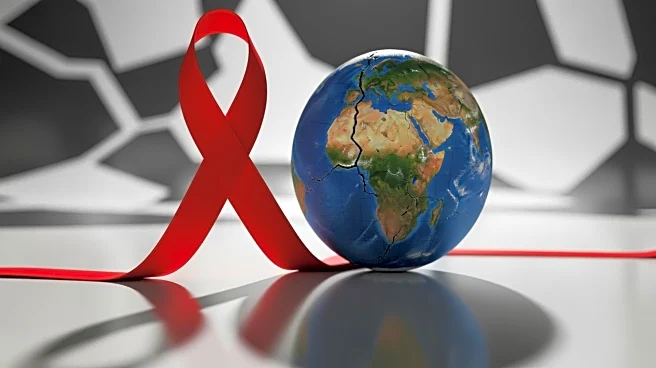What's Happening?
Lesotho, a small African nation with the world's second-highest HIV infection rate, faces significant challenges following U.S. aid cuts. President Trump’s decision to freeze foreign assistance and dismantle
USAID has led to clinic closures, job losses, and disrupted treatment for HIV-positive residents. Although some U.S.-funded programs have been temporarily reinstated, the situation remains precarious, with many residents expressing deep concern over the future of their health services.
Why It's Important?
The aid cuts have severely impacted Lesotho's ability to manage its HIV epidemic, threatening the progress made over years with nearly $1 billion in U.S. aid. The disruption of key programs, including those targeting mother-to-child transmission and high-risk groups, poses a risk of increased HIV transmission and higher mortality rates. The situation underscores the critical role of international aid in supporting health systems in vulnerable countries and highlights the potential consequences of political decisions on public health.
What's Next?
Negotiations between the U.S. and Lesotho are ongoing to establish a multiyear funding agreement. While temporary measures have been put in place, the long-term sustainability of Lesotho's HIV programs remains uncertain. The country faces the challenge of transitioning towards greater autonomy in public health funding, a process that will require significant time and resources.
Beyond the Headlines
The aid cuts reveal deeper issues related to dependency on foreign assistance and the need for sustainable health funding models. The situation in Lesotho raises ethical concerns about the impact of political decisions on vulnerable populations and the responsibility of wealthier nations to support global health initiatives. The disruption also highlights the importance of maintaining stable international relations to ensure continued support for critical health programs.











